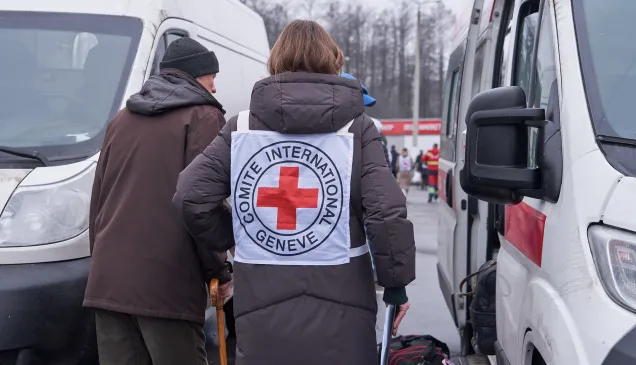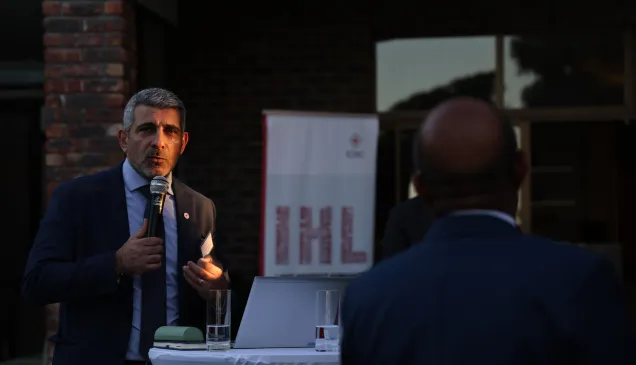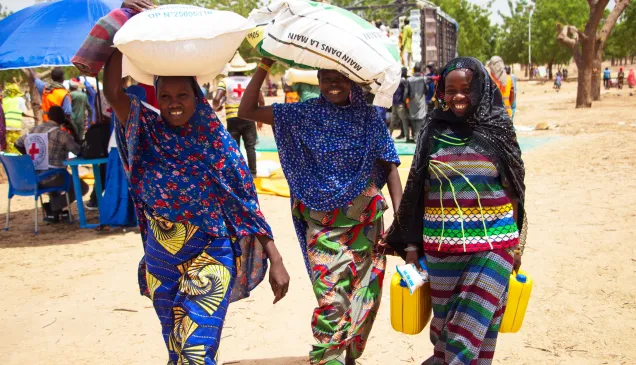Speech by ICRC President: Uphold the norms that safeguard humanity
Speech given by Peter Maurer, President of the International Committee of the Red Cross, at the World Humanitarian Summit in Istanbul, Turkey.
Excellences,
Ladies and gentlemen,
I speak to you today in the ICRC's role as the Guardian of the Geneva Conventions – a set of universally ratified treaties, applicable to all parties in conflict.
At the heart of all international humanitarian law (IHL) lies the protection of civilians, of detainees, of the wounded and sick, and of others not participating in hostilities. It is this shared humanity that gives IHL its relevance, its legitimacy, and its universal sense.
I speak to you also because millions of people who suffer in armed conflicts around the world have no voice.
What will future historians remember from our present time? That millions of people were deliberately or carelessly targeted; that their homes, hospitals and schools were destroyed and entire cities bombed to rubble; that millions of men, women and children were forced into displacement?
We still have a shot at making a different kind of history.
This is where international humanitarian law can guide us – and future generations – through the dark times of war, to make the right choices when confronted with violence and hatred, with radical ideologies of exclusion and destruction.
The dangerously large gap between discourse and practice around the law must be closed. The crumbling consensus of belligerents around the law must be halted.
Respecting the law is the first step to turn the tide. It is simple, yet demanding:
- Stop targeting civilians;
- Do not rape, torture or summarily execute people;
- Do not bomb or otherwise attack hospitals and schools;
- Do not threaten, kidnap or kill those who help;
- Do not abuse civilians as human shields;
- Do not use illegal weapons and do not use weapons illegally;
And if you see any of these happening: Do something against it, with all your authority and power. Do not take the easy way out by declaring all civilian victims collateral damage.
Instead, respect IHL:
- Make every effort to protect civilians in your choice of weapons and military tactics;
- Provide relief for those who suffer and allow access to those who help in a neutral, impartial and independent way;
- Care for those who flee violence;
- Treat detainees humanely.
IHL is principled but also pragmatic and practical: it does not rule out war, it sets limits to its conduct, thereby recognizing the very real dilemma of finding the balance between military necessity and humanitarian imperative.
But law can only ever be a means to an end. Law is never an end in and of itself.
IHL can be a formidable instrument if it is applied in good faith, and continually interpreted and developed to match new challenges.
It must not be abused as a political instrument against adversaries, exacerbating already tense situations.
It must serve to build a space for dialogue among and between belligerents.
It must be the basis of renewed dialogue on the challenges and dilemmas of preserving a minimum of humanity in war: getting food parcels and doctors into besieged areas, getting a team into a prison to reduce malnutrition and disease, getting engineers to rebuild sewage systems and the list goes on.
As difficult and senseless as war can be, we need unremitting investment, engagement and negotiation, to translate the spirit of the law into a reality for the people who need protection.
IHL is no longer just the business of a few military and legal specialists; it is headline news and an integral part of the humanitarian landscape. It has value as a strong normative system, not least for all those who are suffering from war.
With our experience from the frontlines of armed conflict, we stand ready to engage with you, individually and collectively, publically or confidentially, as you deem fit, to move to the next level, to find pragmatic solutions to complex dilemmas, to understand the specificities of your respective environments, and to learn together from best practices.
I call on you to respect the law, to ensure respect for the law, to keep the balance in a world where many different powers pull in all different directions.
If this Summit wants success, the outcome must focus on people, not on systems.
Commitments must be followed by concrete actions and a profound change of behaviour on all sides. The people suffering in wars deserve nothing less than actions that will protect their lives and dignity.
I call upon you to grasp this Summit's opportunity, to recommit to the global contract of humanity in IHL – in your own interest and, yes, in the interest of your adversaries, too.
Use your power to ensure that war has limits – every day, in every armed conflict, and for everyone – because wars without limits are wars without end.
Thank you.



